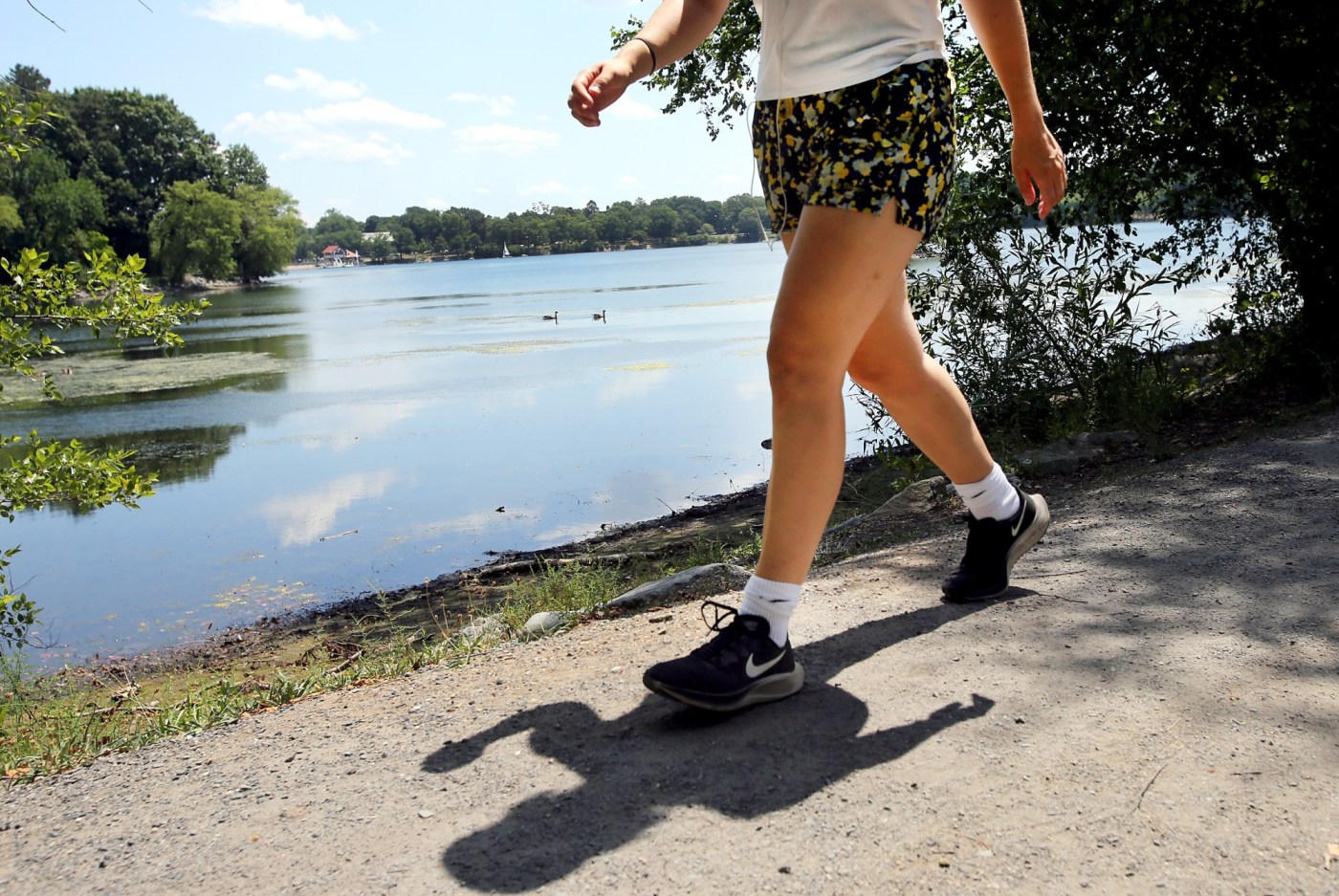How many steps do you need? Researchers found 4,000 steps led to benefits for older group

Are you constantly checking your watch or phone to see if you’ve hit 10,000 steps a day? A new study from Mass General Brigham suggests that even just 4,000 steps one or two days a week can bring significant health benefits for seniors.
According to the researchers, older women who took 4,000 steps on just one or two days per week had a 27% lower risk of cardiovascular disease and a 26% lower risk of death compared to those who took fewer steps.
“In countries like the United States, advances in technology have led to much less movement, especially among older adults,” said I-Min Lee, an epidemiologist at Mass General Brigham’s Department of Medicine and the Division of Preventive Medicine at Brigham and Women’s Hospital. “Given today’s low step counts, it’s crucial to determine the minimum amount of physical activity needed to improve health outcomes so that we can offer realistic and achievable goals for the public.”
The federally funded study followed 13,574 older women, with an average age of 72, who did not have cardiovascular disease or cancer. They were part of Brigham and Women’s Hospital’s Women’s Health Study and wore ActiGraph GT3X+ accelerometers to track their steps over seven days between 2011 and 2015.
Over the next 10 years, researchers monitored mortality and cardiovascular disease incidence. Participants were grouped based on how many days per week they reached steps counts of 4,000, 5,000, 6,000, or 7,000.
The findings showed that those who achieved 4,000 steps one or two days per week had a 26% lower mortality risk and a 27% lower risk of cardiovascular disease compared to those who never reached 4,000 steps on any day.
Furthermore, women who reached 4,000 steps three or more days per week experienced an even greater reduction in mortality risk—up to 40%.
Interestingly, higher step thresholds did not further decrease cardiovascular disease risk, suggesting the health benefits are associated with the total volume of steps taken rather than how frequently the steps are achieved weekly.
This means women who accumulated a similar total number of steps—whether through consistent daily walking or more sporadic activity—experienced comparable health benefits.
Future research will look into whether these findings apply to populations beyond older, mostly white American women. Researchers also aim to explore if even fewer than 4,000 steps can yield similar health benefits.
“I hope our findings encourage the inclusion of step count metrics in physical activity guidelines, including the upcoming 2028 U.S. Physical Activity Guidelines,” said Rikuta Hamaya, lead and corresponding author at Mass General Brigham’s Department of Medicine and Division of Preventive Medicine.
“If promoting at least 4,000 steps just once a week among older women can help reduce mortality and cardiovascular disease risk nationwide, it could make a meaningful impact on public health.”
https://www.twincities.com/2025/10/24/how-many-steps-do-you-need-boston-researchers-found-4000-steps-led-to-benefits-for-older-group/









